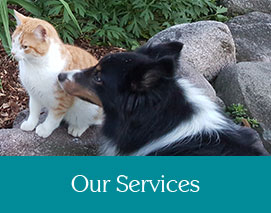Library
-
Miconazole + chlorhexidine + tris-EDTA topical (brand name MiconaHex+Triz®) is an antifungal and antimicrobial cleansing agent used in the treatment of surface skin infections and to enhance the effectiveness of other topical antibiotics in cats and dogs. It comes in spray, mousse, shampoo, and wipe forms.
-
Miconazole otic is an antifungal used in the treatment of external ear infections (otitis externa) caused by fungal organisms in cats, dogs, and other animals. It may be specially compounded and/or combined into a formulation with other medications. Miconazole otic comes in ointment or liquid drop suspension forms that may be specially compounded.
-
Midazolam is a benzodiazepine used for its sedative, anti-anxiety, and muscle relaxant properties. It is primarily used as a sedative before surgery and to stop seizures. It is used “off label” or “extra label” in animals. This medication is a controlled substance primarily given via injection by your veterinary team, though it may be prescribed to your pet for intranasal or intrarectal administration at home.
-
Milbemycin otic (brand name MilbeMite® Otic solution) is an antiparasitic used in the treatment of ear mite infestations in cats and kittens four weeks of age or older. Milbemycin otic comes in liquid drop form (in pre-measured ampules).
-
Milbemycin oxime is a heartworm disease preventive and treats internal parasites in dogs and cats (e.g., hookworms and roundworms). It is also used off label to treat infestations in dogs. Milbemycin is given by mouth with a flavored oral tablet.
-
Milbemycin oxime + afoxolaner is a heartworm disease preventive that also treats certain internal parasites and controls fleas and ticks in dogs. It is also used off-label to treat mite infestations in dogs. This combination drug is given by mouth as a flavored chew tablet. Certain dog breeds are more sensitive to milbemycin oxime than others; your veterinarian will advise you on the safety of milbemycin oxime use in your dog. If you suspect an overdose or an adverse reaction to the medication, call your veterinary office immediately.
-
Milbemycin oxime + lufenuron is a heartworm disease preventive that also treats internal parasites (e.g., whipworms, hookworms, and roundworms) and controls flea populations in dogs. Milbemycin oxime + lufenuron is given by mouth as a flavored chew tablet. At prescribed doses, this medication is well-tolerated; when used off-label at higher doses for treating mites, side effects have been observed. Your veterinarian will advise you on the safety of milbemycin oxime + lufenuron use in your dog. If you suspect an overdose or an adverse reaction to the medication, call your veterinary office immediately.
-
Milbemycin oxime + lufenuron + praziquantel is a heartworm disease preventive that also treats certain internal parasites and controls fleas in dogs. This combination medication is given by mouth as a flavored chew tablet. At prescribed doses, this medication is well-tolerated. Certain dog breeds are more sensitive to milbemycin than others; your veterinarian will advise you on the safety of milbemycin use in your dog. If you suspect an overdose or an adverse reaction to the medication, call your veterinary office immediately.
-
Milbemycin oxime + praziquantel is a heartworm disease preventive that also controls tapeworms, hookworms, roundworms, and whipworms in dogs. It is given by mouth as a flavored chew tablet and must be given with a meal to ensure adequate absorption. At prescribed doses, this medication is well-tolerated. Your veterinarian will advise you on the safety of this combination product’s use in your dog. If you suspect an overdose or an adverse reaction to the medication, call your veterinary office immediately.
-
Milbemycin oxime + spinosad is a heartworm disease preventive that also controls hookworms, roundworms, whipworms, and fleas in dogs. Milbemycin oxime + spinosad is given by mouth as a flavored chew tablet. At prescribed doses, this medication is well-tolerated. Your veterinarian will advise you on the safety of this product’s use in your dog. If you suspect an overdose or an adverse reaction to the medication, call your veterinary office immediately.



